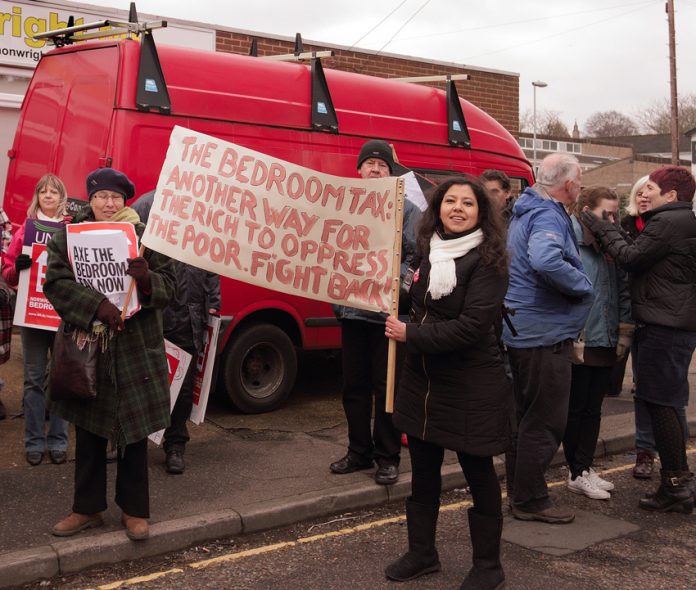A UN human rights committee report on UK social housing conditions has urged the ‘immediate suspension’ of the bedroom tax in the UK.
The bedroom tax ‘impacts on the right to adequate housing and general wellbeing of many vulnerable individuals and households’ says the report.
The report was drawn up by Raquel Rolnik, UN special rapporteur on housing, who made a research trip to Britain last August and September 2013.
She said at the end of her visit: ‘In only a few months of its implementation the serious impacts on very vulnerable people have already been felt and the fear of future impacts are a source of great stress and anxiety.’
It was published in full by the UN on Monday when Rolnik repeated her call to scrap the hated ‘bedroom tax’.
Rolnik, who is a former urban planner from Brazil, visited council estates, food banks, homelessness crisis centres and housing association developments in Belfast, Manchester, Glasgow and Edinburgh.
Her research found that low income households ‘faced hard choices between food, heating or paying the rent.’
In her preliminary findings on 11 September 2013, Rolnik warned: ‘Housing deprivation is worsening in the United Kingdom.’
She added: ‘Especially worrisome in this package is the so-called “bedroom tax”, or the spare bedroom under occupancy penalty.
‘Of the many testimonies I have heard, let me say that I have been deeply touched by persons with physical and mental disabilities who have felt targeted instead of protected; of the grandmothers who are carers of their children and grandchildren but are now feeling they are forced to move away from their life-long homes due to a spare bedroom or to run the risk of facing arrears; of the single parents who will not have space for their children when they come to visit; of the many people who are increasingly having to choose between food and paying the penalty.
‘Those who are impacted by this policy were not necessarily the most vulnerable a few months ago, but they were on the margins, facing fragility and housing stress, with little extra income to respond to this situation and already barely coping with their expenses.’
